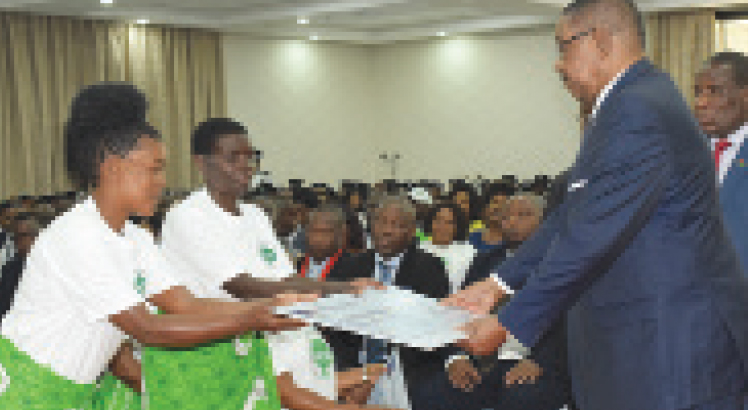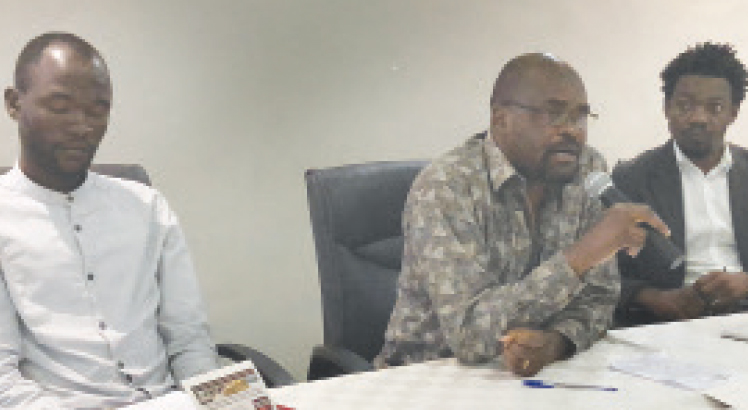The National Economic Empowerment Fund (Neef) is pushing to recover K13 billion or 40 percent of the money the organisation has disbursed as loans since its inception in December 2020.
Formerly Malawi Enterprise Development Fund, Neef is a government-owned microfinance institution whose mission is to economically empower ordinary and underserved Malawian (particularly women, youth and persons with disability) through the provision of quality, affordable and sustainable microfinance services.
Neef has since February 2021 disbursed a total of K32 billion to more than 105 000 Malawians across the country, according to figures from the organisation.
Former president Peter Mutharika presides over a Medf function
Neef public relations and marketing officer Whytone Kapasule in an interview on Wednesday said although the 60 percent recovery rate is an improvement over the previous years’ performance, when the organisation was operating as Medf, it is way behind the target of 80-90 percent recovery rate.
He said: “For an organisation whose collections rates for 2020 and other previous years were between 20 percent and 30 percent, the current 60 percent is a positive trajectory and we are optimistic it will grow to our desired rate of 80 to 90 percent.”
Kapasule said the recovery rate as of September 15 2021, stood at 74 percent, and was one of the highest for a taxpayer-funded revolving loan scheme. Out of the K4.2 billion that was due for recovery by that date, Neef collected K3.14 billion.
According to him, the recovery rate was a big jump from the nine percent collected during the 2019/20 financial year when only K540 million was recovered out of the K6.4 billion disbursed.
In its inception year as Neef (2020/21), the organisation disbursed K8 billion while in the 2021/22 fiscal year, it only disbursed K26 billion out of the budgeted K40 billion. The low absorption was attributed to the Covid-19 pandemic and limited funding.
Kapasule disclosed that to enhance loan monitoring and collections, the organisation has recruited 150 additional loan officers and deployed them to every constituency.
In an earlier interview National Small and Medium Enterprises national coordinator William Mwale described Neef loan conditions as prohibitive and not different from what commercial banks are exacting.
He said: “Generally, the Neef loans have many bottlenecks that will leave out many SMEs who intend to borrow.”
Commenting on the issue, economist Milward Tobias, who is also executive director of Centre for Research and Consultancy, said to improve loan recovery rate Neef should find ways of ensuring that loan beneficiaries are venturing into profitable businesses and that there are clear consequences for defaulters.
A special audit report into the operations of Medf released last year exposed deep-rooted rot where officers gave loans to wives, ex-wives, relatives and friends.
The investigation conducted from August 3 2020 to September 25 2020 by the government’s Central Internal Audit Unit, uncovered what the report calls “a criminal syndicate” comprising officers from various departments at the head office in Lilongwe and Liwonde branch.
At least 21 members of staff implicated in the report were arrested in connection with fraud and forgery.
The syndicate, according to the report, defrauded Medf K53.3 million through loan disbursements to fraudulent beneficiaries.
Medef was formed by an Act of Parliament in February 2014 as the only microfinance limited company owned by government.
The post Neef’s K13bn loans stuck appeared first on The Nation Online.
 Moni Malawi
Moni Malawi 

